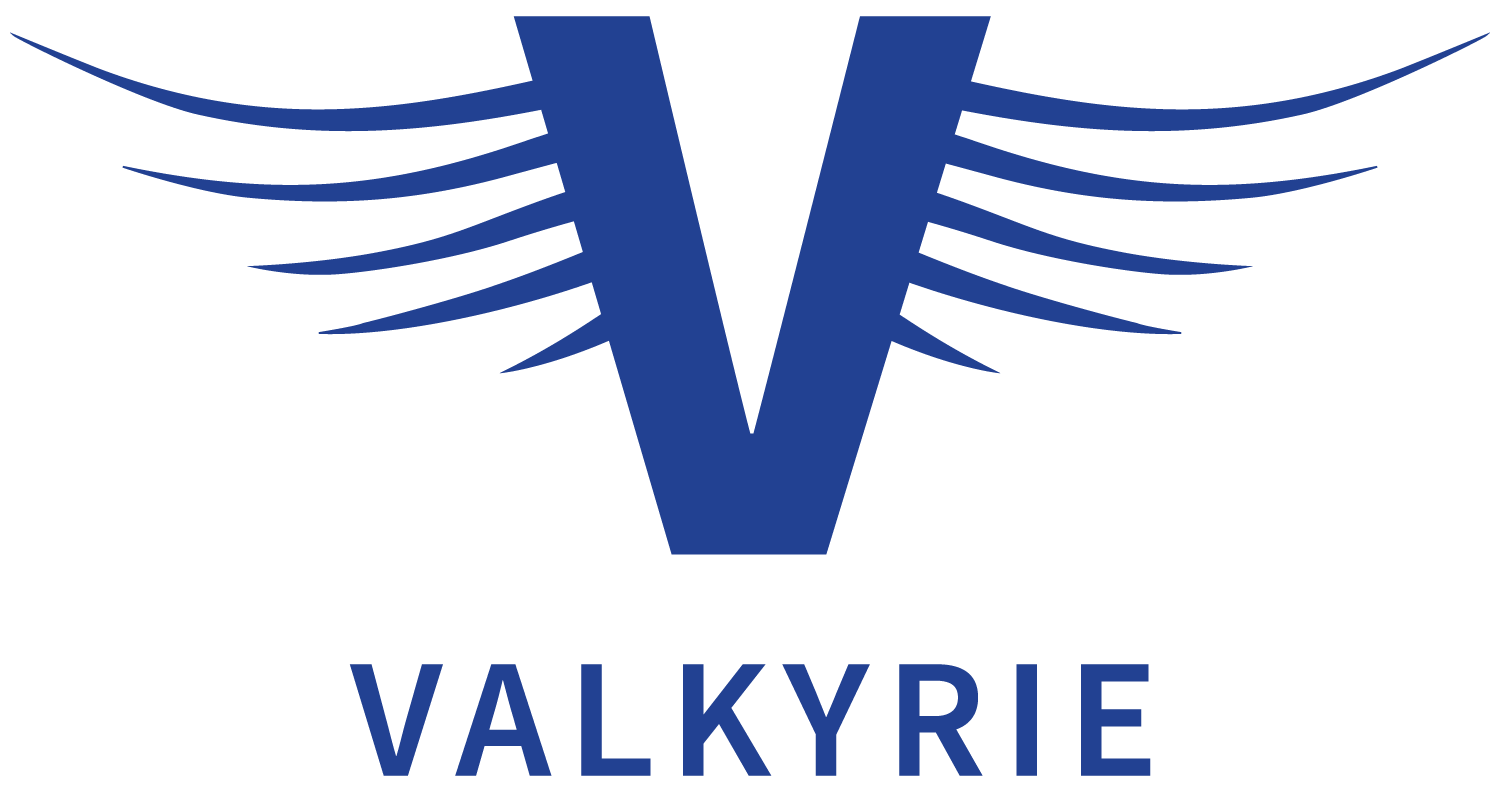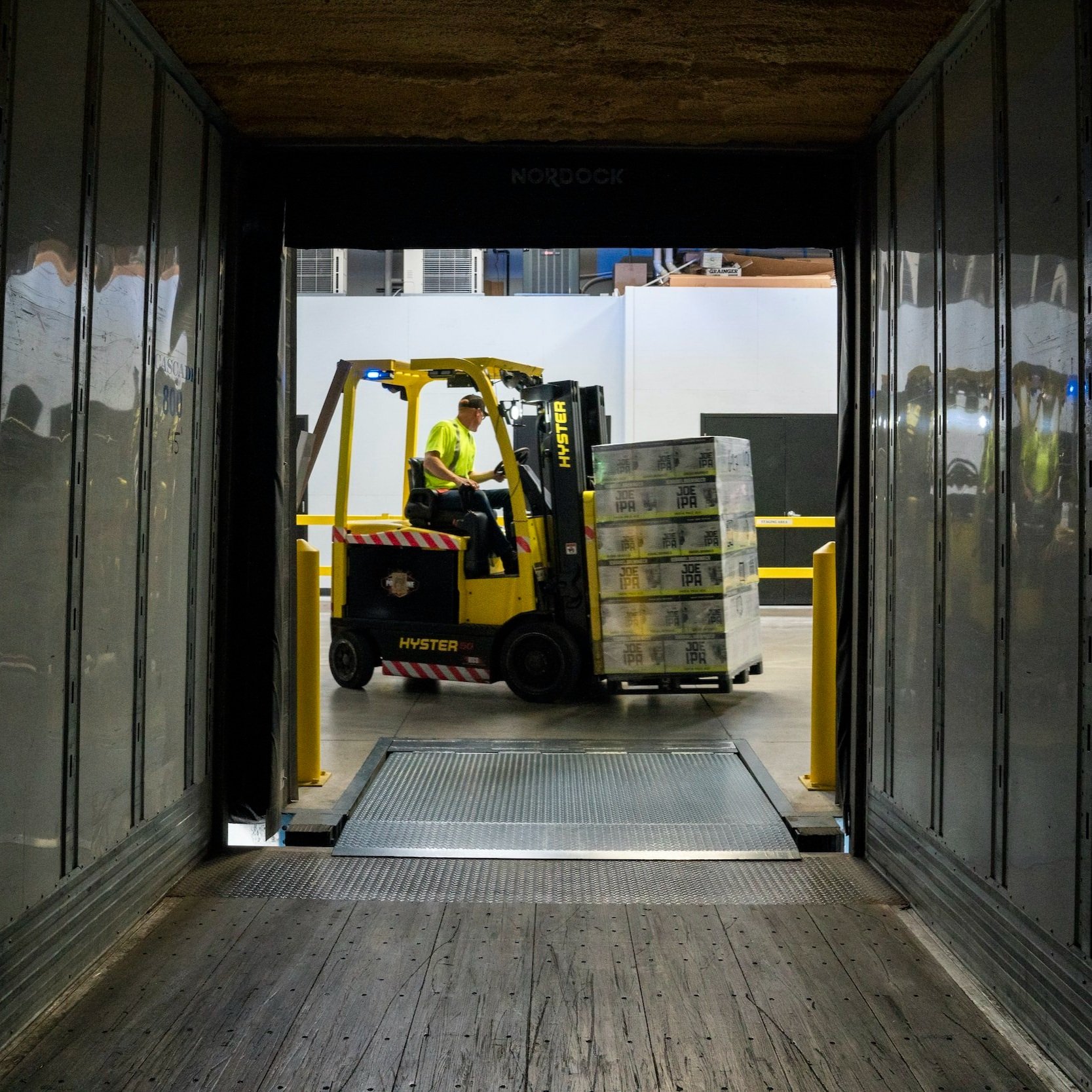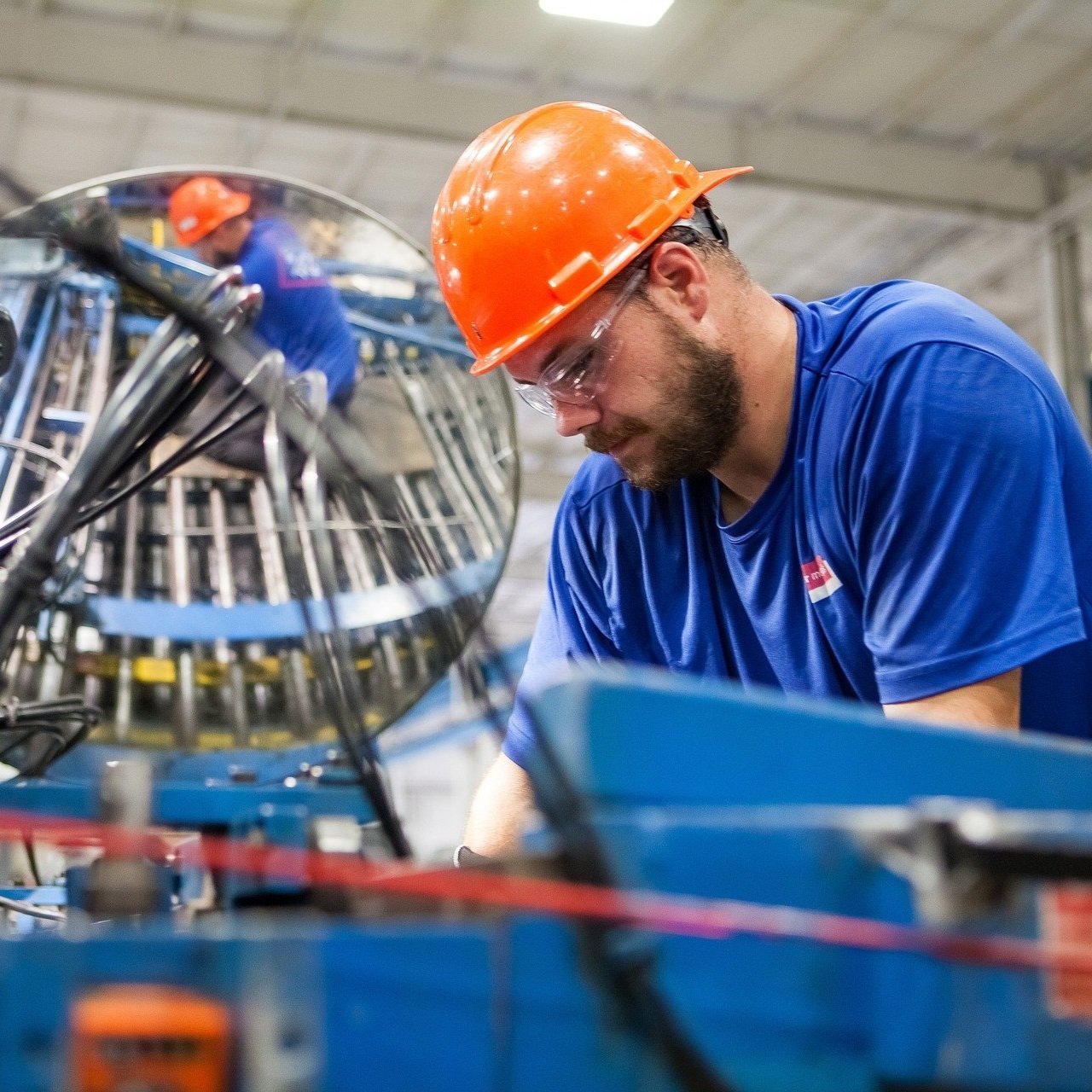
Manufacturing Apprenticeship Qualifications
Supply Chain Warehouse Operative
Level 2
Duration: Typically, 15 months (this does not include EPA period)
Warehouse Operatives work in a variety of warehouse environments. Work activities include taking deliveries, checking for damaged/missing items, storing goods, moving stock by various methods, picking/packing orders, loading goods for dispatch, maintaining stock records and documentation, and cleaning. They are required to safely use a range of equipment, machinery and vehicles, as relevant to their role and setting. This could include mechanical racking systems, materials handling equipment (MHE) or fork lift trucks.
Warehouse Operatives communicate with a wide range of people and customers. They have a passion to meet customers’ expectations by providing a quality service that encourages repeat business. Individuals in this role are highly competent in using industry-recognised systems and associated services and will be able to work under pressure to tight deadlines.
Assessment
The apprentice must achieve the following on-programme assessment requirements prior to Gateway:
English and Maths at Level 1
A minimum of 12 months on programme
Future Job Prospects & Learning Opportunities
With experience, you could become a team leader, shift supervisor or warehouse manager.
You could also move into quality control, freight planning or distribution. You could progress on to a Team Leader/Supervisor Level 3 Apprenticeship.
Lean Manufacturing Operative
Level 2
Duration: Typically, 15 months (this does not include EPA period)
A Lean Manufacturing Operative will be expected to carry out their work safely and meet the exacting quality standards demanded in a fast paced and efficient processing environment and develop into a multi-skilled operator through process ownership. A lean manufacturing operative can be required to carry out manufacturing activities on multiple products with different specifications consecutively e.g. automotive manufacturing – Multi models manufacturing results in the manufacturing of different models of vehicle with different specification variants within a high volume environment.
Assessment
The apprentice must achieve the following on-programme assessment requirements prior to Gateway:
English and Maths at Level 1
Attempt tests for English and Maths at Level 2
Portfolio of evidence
Working towards Level 2 Diploma in Manufacturing (Skills and Knowledge)
Future Job Prospects & Learning Opportunities
There are a variety of roles once you complete your apprenticeship you could progress into one of the following roles: Team Member Production, Manufacturing Production Operative, Manufacturing Assembly Operative, Manufacturing Inspection/Quality Assurance Operative, Manufacturing Logistics Operative, Manufacturing Material Handling Operative or Manufacturing Process/Finishing Operative.
Examples of the job titles from across the manufacturing sector that would be covered within this standard are: Team Member Production; Manufacturing Production Operative; Manufacturing Assembly Operative; Manufacturing Inspection/Quality Assurance Operative; Manufacturing Logistics Operative; Manufacturing Material Handling Operative; Manufacturing Process/Finishing Operative.
Safety, Health and Environmental Technician
Level 3
Duration: Typically, 24 months (this does not include EPA period)
The SHE Technician will be able to work in organisations of varying size and industry; the role could be based in one location or may involve travel across a range of contracts. The role will be partly office based and partly at the work front providing advice to others on how to work without harming themselves or others.
The Technician will work with the management and delivery team of the organisation to advise on the statutory health, safety and environmental requirements as they affect the company’s operations. They will assist the management team in ensuring that the legal and company SHE requirements are implemented. On a daily basis the SHE Technician will assist to develop, review and check on the implementation of safe systems of work, deliver training (e.g. toolbox talks & inductions), investigate incidents, analyse data and present findings to the management team.
The SHE Technician will engage with all aspects of the organisation to support the embedment of a culture that ensures everyone is able to return to their family and friends unharmed every day whilst also protecting and enhancing the global land, air and water resources for future generations. This will be achieved by inspiring and influencing others to see the benefit of working responsibly, understanding the legal framework and showing how safety, health and environmental management can enhance operational activities.
Assessment
The apprentice must achieve the following on-programme assessment requirements prior to Gateway:
Level 2 English and Maths
Portfolio of Evidence to support the Professional Discussion
Future Job Prospects & Learning Opportunities
Upon completion learners will be able to join the Institution of Occupational Safety and Health (IOSH) at TechIOSH level.
With further study, you could move into a number of roles in organisational safety and environmental experts are needed in business, industry and government as well as estate management, land reclamation, countryside management and conservation.
Improvement Technician
Level 3
Duration: Typically, 18 months (this does not include EPA period)
Improvement Technicians are responsible for delivery and coaching of improvement activity within an area of responsibility, often associated with Lean and Six Sigma methodologies. They can be found across all industry sectors and functions including automotive, banking, engineering, food products, IT, property, retail, telecoms Local and County Councils, NHS, Voluntary / Charity, Utilities, Pharmaceuticals, Insurance, Hospitality etc.
Typically, Technicians work as a member of an operational team to resolve problems - preventing re-occurrence, engaging others in issues affecting them and to support the improvement of performance. Typical activities include:
Engaging team members in the identification of improvement opportunities and relevant countermeasures and controls
Initiating and facilitating improvement activities through to confirmed resolution
Providing local expertise in business improvement methods and basic tools to team
Assessment
The apprentice must achieve the following on-programme assessment requirements prior to Gateway:
Level 2 English and Maths
Portfolio of Evidence to support the Professional Discussion
Future Job Prospects & Learning Opportunities
With further study, you could progress on to the Improvement Practitioner Level 4 Apprenticeship and move into roles such as Business Improvement Practitioner, Continuous Improvement Manager, Process Excellence Manager, Lean Six Sigma Green Belt and Quality Control Senior Analyst, Environmental Compliance Manager, Engineer (Environmental, Mechanical, Geotechnical, Civil, Chemical, etc), Environmental Construction Management, Environmental Data Analyst, Environmental Health and Safety Officer, and Transportation Engineer.
Green job titles: Environmental improvement compliance manager, Environmental improvement engineer, Environmental improvement construction manager, Environmental improvement data analyst, Environmental improvement health and safety officer.
Process Leader
Level 4
Duration: Typically, 24 months (this does not include EPA period)
The broad purpose of this occupation is to undertake and direct production activities and operations and deliver against core production Key Performance Indicators (KPIs). Process Leaders effectively lead and manage large teams as well as providing technical/specialist input and direction to their own team and to others.
Process Leaders are responsible for determining and managing budgets and resources. They use core production KPIs as the basis of the continuous improvement cycle and undertake and manage quality resolutions. Process leaders manage health, safety and environment within their area of responsibility, ensuring staff are compliant with all requirements and driving improvements and use project management tools to plan, organise and manage resources, monitor progress, identify risks and mitigation.
They develop, build and motivate team members as well as manage performance and industrial relations. As well as providing clear direction and leadership to their own team and others, Process Leaders build and maintain strong relationships across different disciplines, to ensure that the activities of functions such as HR, Purchasing, Planning, Finance focus on core production KPIs. Effective communication is a core responsibility of the Process Leader role, whether this be communication corporate vision and strategy or using data and information to create compelling presentations and drive management decisions.
Assessment
The apprentice must achieve the following on-programme assessment requirements prior to Gateway:
Level 2 English and Maths
Portfolio of Evidence to support the Professional Discussion
Future Job Prospects & Learning Opportunities
A Process Leader could move in to a variety of roles. You could move in to project management, procurement management or supply chain management. With further study you could move in to operations management and eventually Director of Quality or Manufacturing.
Achievement of the standard is designed to be recognised by relevant Professional Engineering Institutions such as the Institute of Engineering and Technology (IET) and the Institute of Mechanical Engineers (IMechE) for at the appropriate level of professional registration (EngTech).
Improvement Practitioner
Level 4
Duration: Typically, 20 months (this does not include EPA period)
Improvement Practitioners use a blend of Lean and Six Sigma, project and change management principles and tools to identify and lead the delivery of change across organisational functions and processes. Improvement Practitioners can be found across all sectors and functions including automotive, banking, engineering, food products, IT, property, retail, telecoms, Local and County Councils, NHS, Voluntary / Charity, Utilities, Pharmaceuticals, Insurance, Hospitality etc.
Typically, Practitioners lead smaller projects and/or play a key supporting role in a larger programme – tackling issues that may require swift problem solving, or re-occurring challenges that require in-depth analysis and the implementation of a range of effective and sustainable countermeasures. They are the focal point for all stakeholders and responsible for communication throughout a project. Typical activities include:
Identifying potential opportunities, diagnosing issues, proposing solutions and implementing changes and controls
Coaching teams and sharing best practice
When leading projects they may manage small teams ensuring motivation and momentum, and be responsible for the successful
Assessment
The learner must achieve the following on-programme assessment requirements prior to Gateway:
Level 2 English and Maths
Portfolio of Evidence to support the Professional Discussion
Future Job Prospects & Learning Opportunities
With further study, you could progress on to the Improvement Specialist Level 5 Apprenticeship and move into roles such as Business Improvement Expert, Continuous Improvement Consultant, Process Excellence Manager, Lean Six Sigma Black Belt, Business Improvement Consultant, Business Transformation Consultant, Environmental Manager, Engineer (Environmental, Mechanical, Geotechnical, Civil, Chemical, etc.), Environmental Data Analyst, Environmental Health and Safety Manager.
Green job titles: Business sustainability improvement consultant, Environmental improvement manager, Environmental improvement engineer, Environmental improvement data analyst and Environmental improvement health and safety manager.
Find out more about our Manufacturing Apprenticeships






